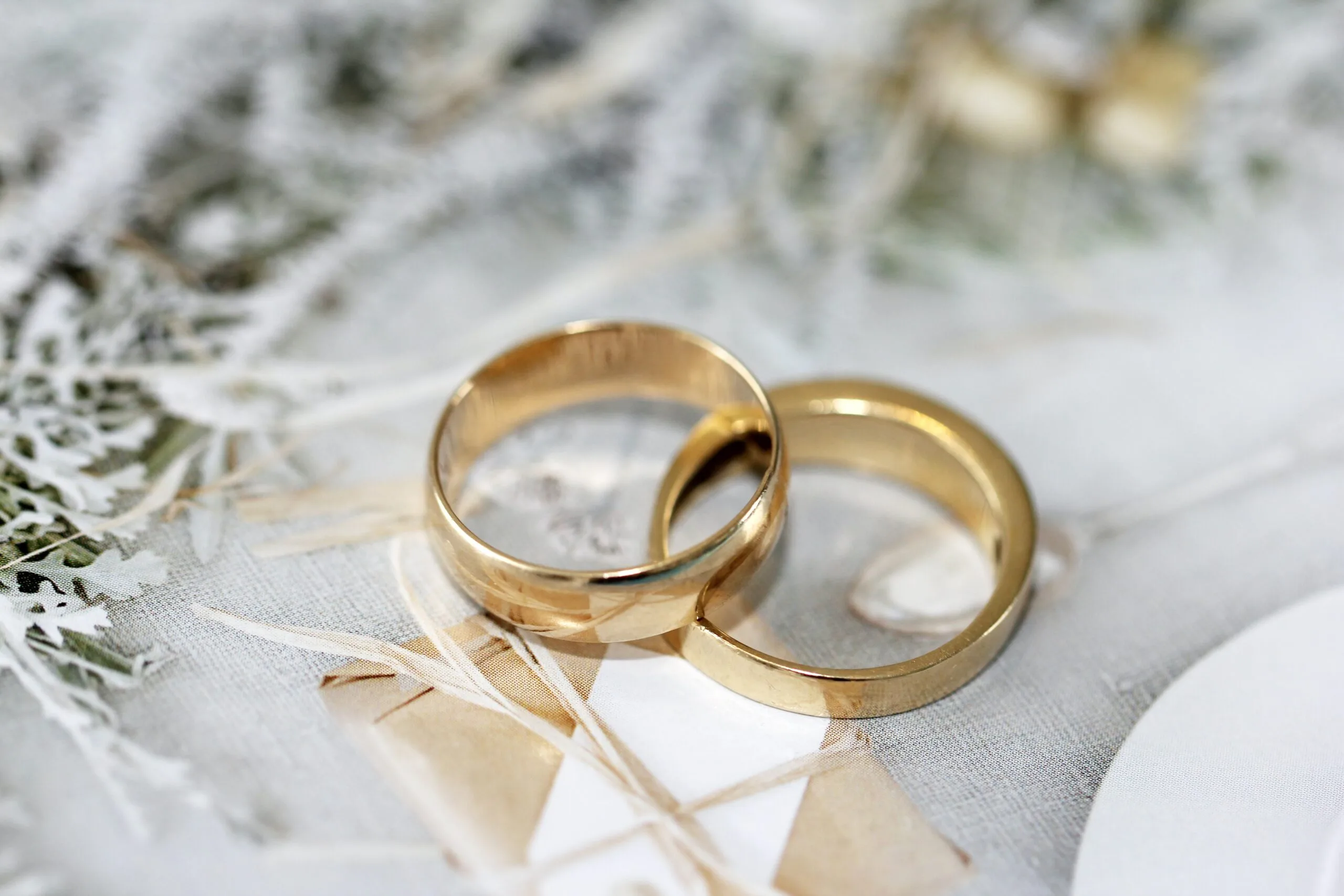At Young Hip & Married, we strive to make our wedding ceremonies as personal and inclusive as possible. One of the goals of our blog is to share our practices, tips and ideas with you so you can create a better ceremony and so we can improve together.
One small way we’re changing our ceremonies is by including a land acknowledgment. This is something some of our officiants have been doing for years and is a new thing to others. In March 2021, we reached out to our team of officiants with a simple invitation to include a land acknowledgment at the beginning of every wedding ceremony.
We are not the experts. In writing this blog post, we wanted to share what we’re doing and why, as well as resources for more information.
For more information on territory acknowledgments, please visit: https://native-land.ca/resources/territory-acknowledgement/
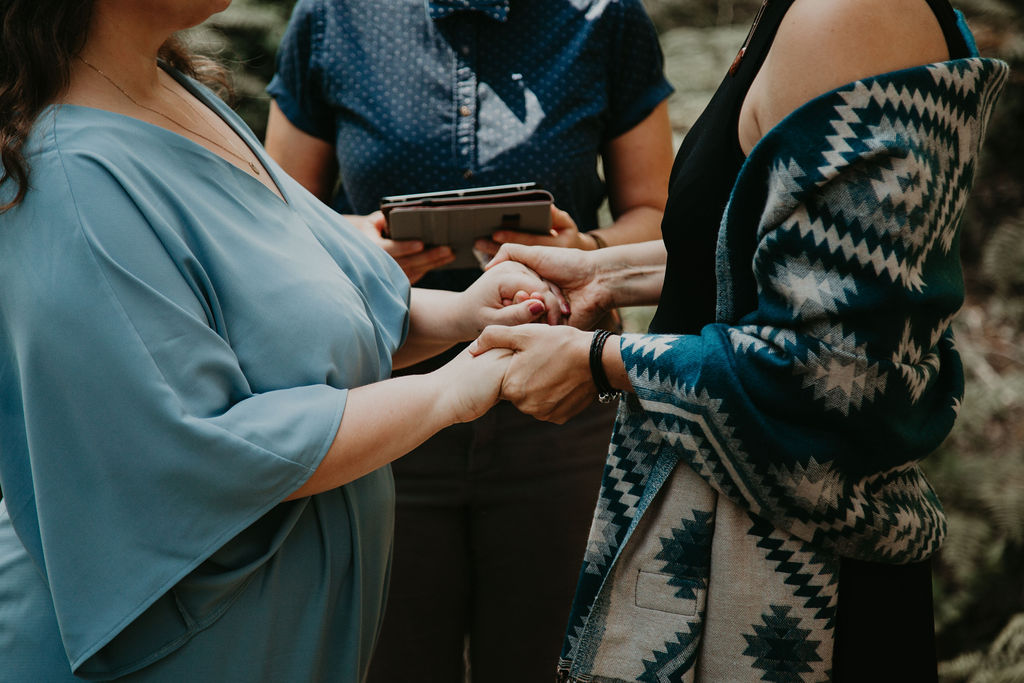
What is a land acknowledgment? Why do we say them?
A land acknowledgment, also known as a territory acknowledgment, is a simple way for us to show respect and insert an awareness of Indigenous presence and land rights in everyday life, as well as recognize the history of colonialism and a need for change in settler-colonial societies.
These acknowledgments should be made as meaningful practice to confront the history, role and privileges of colonialism, and not simply as a token gesture.
As officiants, we often have the pleasure of leading ceremonies in beautiful locations around Canada. We are honoured to take a moment to bring our couples and their guests back to the land and remind them of the original caretakers.
We also have the pleasure of officiating weddings for many international couples. By including a land acknowledgment, we are able to share more of our country’s history and culture with our international visitors.
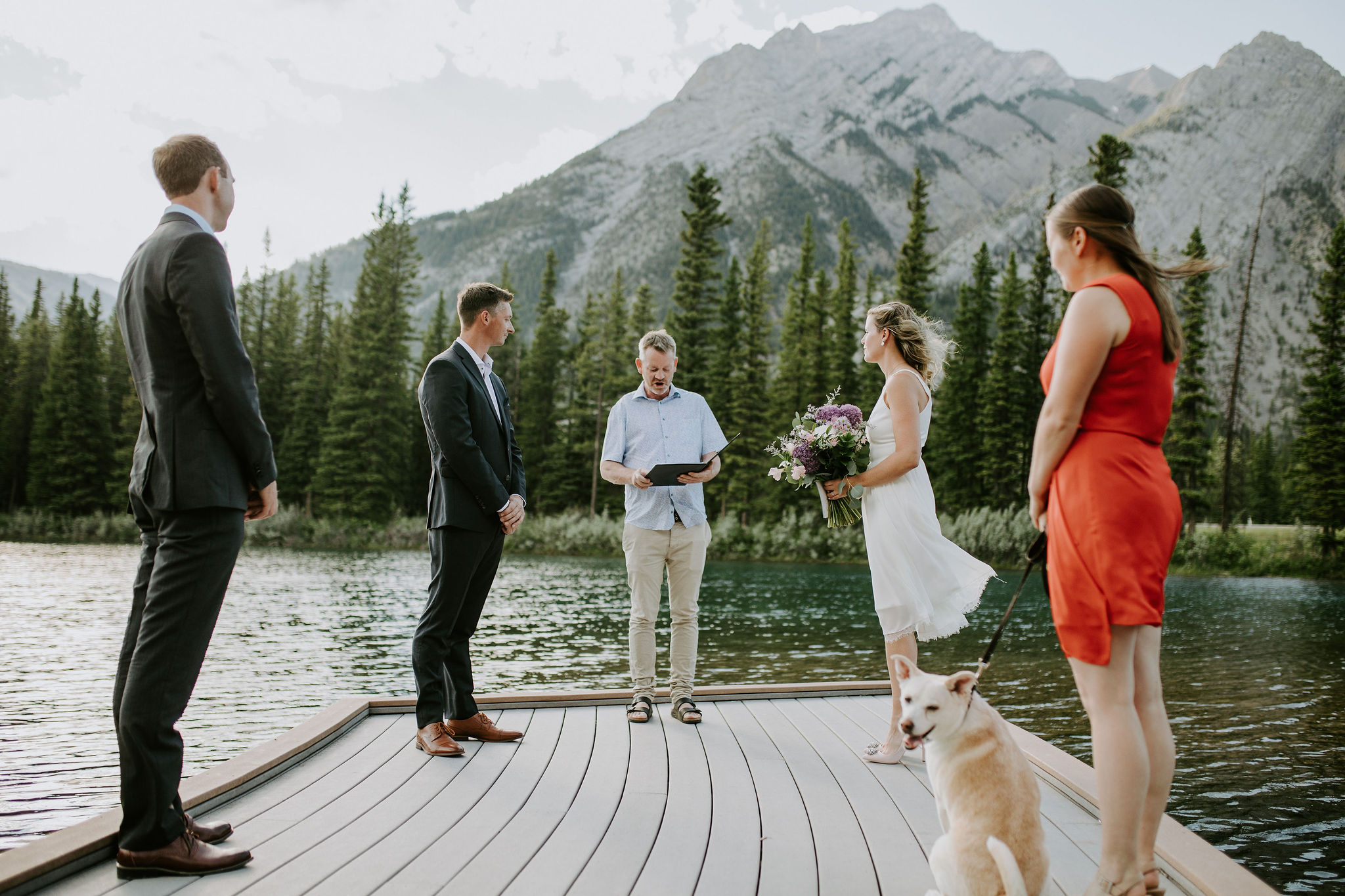
How do you say a land acknowledgment?
Native Land suggests a simple format of, “I want to acknowledge that we are on the traditional territory of [nation names].”
For example, Officiant Jane shares that for her weddings in Vancouver she says, “We want to begin by acknowledging with gratitude that we are gathered here on the unceded territory of the Musqueam, Squamish and Tsleil-waututh Nations.”
Native Land has an incredible map that you can use to find out on which land your wedding is taking place: https://native-land.ca/
In addition to learning on which nation’s territory your wedding is taking place, it’s also important to take the time to learn how the nation names are properly pronounced.
Here are some common areas in British Columbia, their corresponding First Nation(s), and pronunciation.
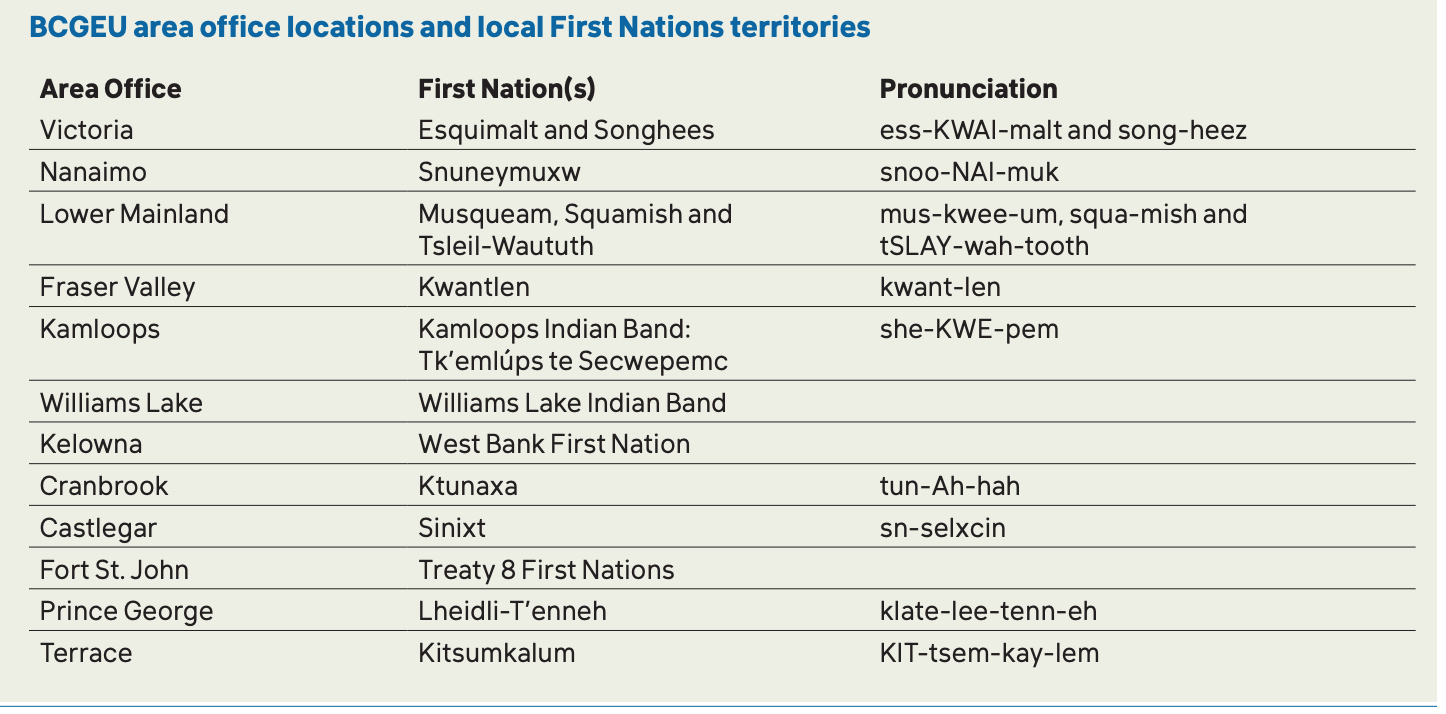
When do you say a land acknowledgment during your wedding ceremony?
Our officiants will often begin your wedding ceremony with a land acknowledgment, said before or after they welcome guests to your celebration. These acknowledgments are typically said at the beginning of an event.
You may also choose to say a land acknowledgment at your reception, particularly if you are welcoming new guests or have moved to a different nation’s territory, or at any other wedding events, such as your engagement party or rehearsal dinner.
Note that if your officiant doesn’t have a land acknowledgment in their script but you would like one said at your ceremony, speak up! You can absolutely request that a land acknowledgment be added to your wedding. Conversely, if you’d like to have the acknowledgment removed for whatever reason, you can also make this request.
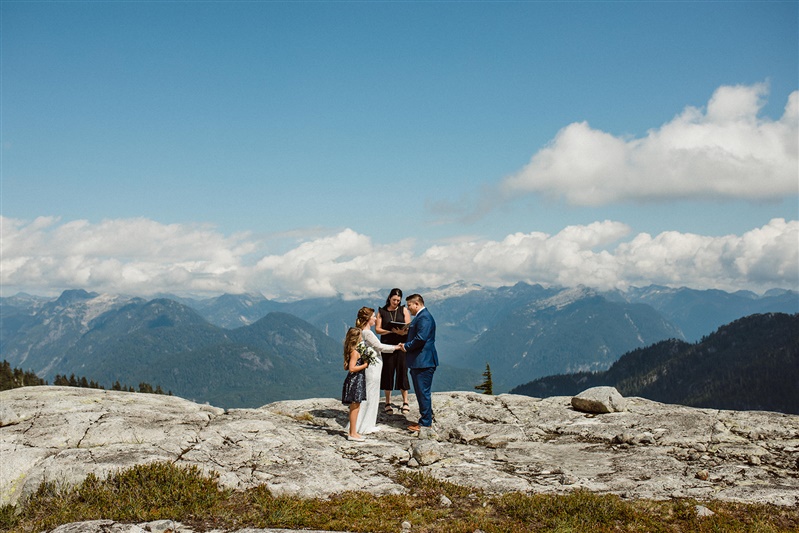
What else can you do?
Beyond the brief acknowledgment, Native Land suggests reflecting on the following questions:
- Why is this acknowledgement happening?
- How does this acknowledgement relate to the event or work you are doing?
- What is the history of this territory? What are the impacts of colonialism here?
- What is your relationship to this territory? How did you come to be here?
- What intentions do you have to disrupt and dismantle colonialism beyond this territory acknowledgement?
Of course, including a territory acknowledgment in your wedding ceremony is just one small way to bring about awareness to Indigenous presence, history and culture. There are many other steps we can all take to work towards reconciliation.
Some of those steps include:
- Educating ourselves about the history and current issues Indigenous people in Canada face. This course by the University of Alberta, which can be taken for free, is a good place to start. You can also check out this book list of Indigenous literature and read the Truth and Reconciliation Commission (TRC) of Canada final report and 94 calls to action.
- Supporting local Indigenous businesses, organizers and creatives. In Vancouver, you can eat at Salmon n’ Bannock, grab a beverage from Spirt Bear Coffee Company, and get your books from Massy Books or Iron Dog Books. Check out this list for other Indigenous owned businesses in Vancouver.
- Engaging with Indigenous media and listening to Indigenous stories. Check out this film list and this music list for inspiration.
- Following Indigenous leaders and organizations on social media. Check out this list of Indigenous artists and activists to follow.
- Donating to grassroots Indigenous organizations such as the Indian Residential School Survivors Society, Orange Shirt Society, and Legacy of Hope.
- Attending Indigenous-led events (where non-Indigenous people are welcome), calling on your MP for further action, protecting and highlighting Indigenous stories, and continuing to engage your non-Indigenous friends and family on the issues facing Canada’s Indigenous peoples.
Once again, we are not the experts here. While we did conduct research in the writing of this blog post and resource list, it is not exhaustive and we surely have room to improve. Please do not hesitate to reach out to us if you have corrections or suggestions for how we can do better.
